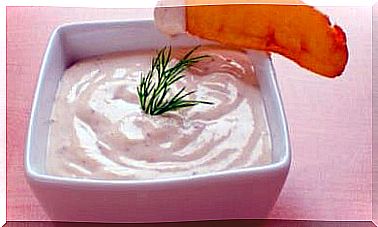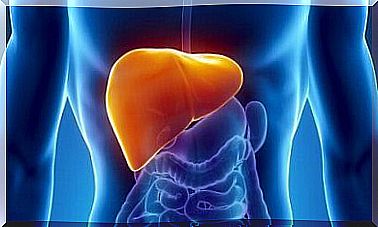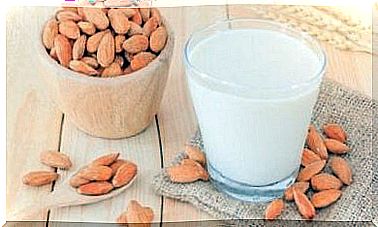The Best And Worst Foods For Your Joints

Following a healthy diet for your joints is essential for good physical health. Joints are exposed to hard work every day. So if you don’t take good care of them, they can be seriously damaged.
Joints are the points in the body where two bones meet so they can move. Therefore, they consist of bone and cartilage. These structures can be easily damaged.
Both aging and physical activity significantly increase the risk of these problems. However, if you eat the right foods, you can help protect and care for your joints.
A common joint disease is rheumatoid arthritis. This disease is caused by hyaline cartilage wear. This is a highly specialized structure that covers the bone surface of joints. At present, only partial treatments exist for these problems.
Nutrition for joints: recommendations
According to the scientific literature, there are some foods that you absolutely must include in your diet. We will discuss these foods below.
Turmeric
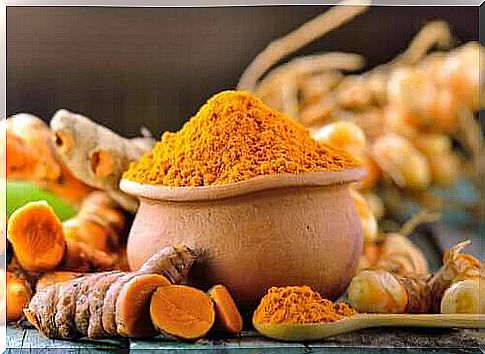
Turmeric is a good ally when it comes to relieving arthritis and osteoarthritis. Best of all, unlike other anti-inflammatory agents, it does not harm the gastric mucosa.
In addition, it is able to reduce histamine in inflammatory processes and stimulate the activity of two enzymes :
- glutathione S-transferase
- glutathione peroxidase
These enzymes are responsible for regulating the body’s response to inflammatory processes, making the elimination of waste products easier.
The curcumin contained in this root has been studied in various types of pain for its anti-inflammatory and analgesic effects.
Olive oil
Olive oil and other foods rich in omega 3 fatty acids can reduce the chronic inflammation associated with various types of diseases and joint disorders. That is why it is important to include it in your diet.
Ginger
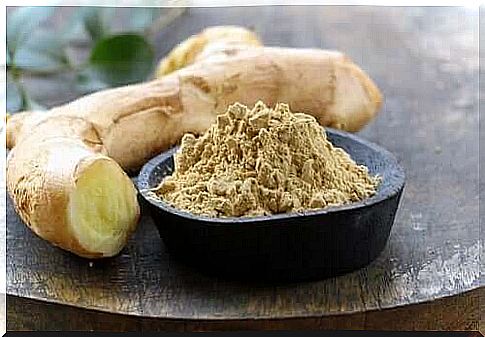
Ginger is another traditional pain reliever as it is very similar to turmeric. This natural remedy has been used for many years to treat nausea, migraines or even high blood pressure.
However, in recent years, some journals have shown varying results on the benefits of this drug for osteoarthritis. However, a study published in the Journal of Medicine Food supports the beneficial role of ginger in your diet for the joints.
Vitamin D
While there is no cure for rheumatoid arthritis, science is making progress every day. Recently, a comparative and randomized clinical trial was conducted on the effect of vitamin D on various parameters in osteoarthritis of the knee.
The authors examined whether administering this vitamin to 107 patients with knee osteoarthritis and vitamin D deficiency:
- could ease the pain.
- could improve joint function.
- certain biochemical markers.
After one year, the authors noted that those taking vitamin D showed an improvement when it came to pain and functioning, as well as normal blood vitamin D levels. That’s why vitamin D is great for your joints.
Other Joint Foods
In addition to the foods we mentioned above, many other foods can strengthen these structures. Here are some examples:
- raspberries, blackberries and oranges
- magnesium supplements
- broccoli, cauliflower and other vegetables
Food that is bad for the joints

Just as certain nutrients can improve the health of the joints, others can negatively affect the joints. These foods include organ meats and red meat. Both foods can promote the development of gout symptoms.
Gout is a condition that develops due to the build-up of uric acid in the blood. It forms crystals that painfully deposit in the joints. That is why it is wise to eat only limited red meat, organ meats and white fish.
Another food to avoid is sunflower and soybean oils. These oils are rich in omega-6 fatty acids, which can exacerbate inflammation. Also, be careful with ultra-processed foods.
Finally, certain studies suggest that sugar can worsen inflammation. While it provides a quick energy boost, it doesn’t last long and can lead to problems for people with arthritis. Consuming too much sugar and ultra-processed foods can exacerbate inflammatory processes.
Conclusion
If you want to protect the health of your joints, it is important to follow a healthy lifestyle, not to exercise too much and to eat a diet rich in vegetables, omega 3 fatty acids and vitamin D, among other things.



